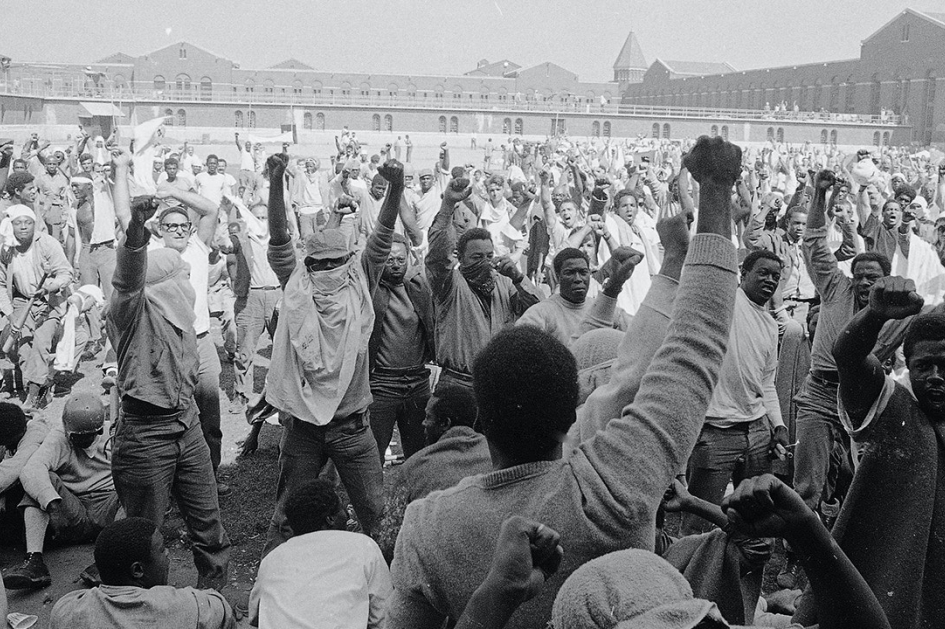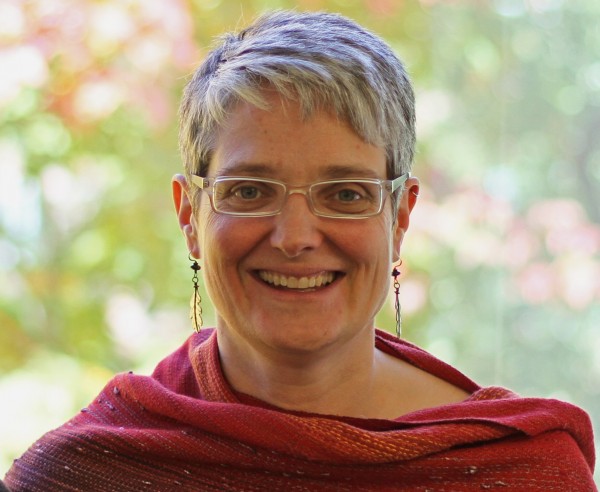
Photo: Public domain / AFSC
No one should be subjected to inhumane conditions—not in a pandemic, not ever. But in the U.S., 2.3 million people are locked up in prisons, jails, and detention centers, where they face the cruel mental and physical harms of confinement, even in ordinary times. Now COVID-19 has multiplied the dangers of imprisonment exponentially.
That's why AFSC is working with communities across the country to free people in this pandemic—and build a future without incarceration.
On Sept. 8, 2020, we hosted the webinar "From Attica to Abolition" as part of our National Days of Action to #FreeThemAll. The days of action marked the 49th anniversary of the Attica uprising, when more than 2,000 people incarcerated in upstate New York took over the yard of Attica Correctional Facility to protest inhumane conditions and demand freedom, wages, education access, medical care, and more.
Watch highlights from our webinar below, featuring:
- Tyrone Larkins, one of the original organizers of the Attica uprising
- Siwatu Salama-Ra, environmental and racial justice organizer from Detroit
- Alejandra Pablos, immigrant rights and reproductive justice organizer
- Raul Medina, immigrant rights organizer with the Colorado People's Alliance
- AFSC staff Laura Magnani and Debbie Southorn
For more information, check out our learning resource toolkit.
Laura Magnani
Laura Magnani, longtime AFSC Healing Justice staff member, outlines AFSC’s history with the movement for prison abolition, beginning with the founding of the Black Panther party, followed by the murder of George Jackson at Soledad Prison, and the Attica Uprising.
“A lot of the work that has been done toward prison abolition started with the consciousness-raising that the Black Panther party did. AFSC has always worked closely with them when they were in their heyday,” she said.
Tyrone Larkins
Attica organizer Tyrone Larkins describes the first day of the 1971 prison uprising—and the violent backlash participants faced. “The fact of the matter is those older guys a lot of us looked up to for guidance and support took charge of this. And it did happen. And for four glorious days, I should say, because this is the first time I could look upon the stars in prison,” he said.
Alejandra Pablos
Alejandra Pablos, reproductive justice and immigrant rights organizer, shares her experience organizing while jailed in a detention center and her ongoing work to fight her own deportation and for the rights of all migrants. “I just started to organize intersectionally with all the movements. We started to share stories. I started to see how my liberation is tied to Black women and girls but also to non-binary people, queer people, Indigenous people, all the folks that are being oppressed … and attacked,” she said.
Siwatu Salama-Ra
Siwatu Salama-Ra, environmental rights activist and prison abolitionist from Detroit, tells the story of her unjust incarceration while pregnant, and her subsequent work while “organizing in hell” for her own liberation and other women in prison. “We have a chance to change. For one, [through] the type of resistance we see right now in the streets and the resistance we saw in Attica 49 years ago as a direct result of an entire race being deprived of justice and consideration for centuries,” she said.
Raul Medina
Raul Medina, who organized a hunger strike while jailed in an immigrant detention center, describes the conditions he faced while incarcerated and says now is the time to work for the world we long for. “I used to live in a 'maybe tomorrow' or 'maybe the next day' [frame of mind], and I have realized I can't live like that. ... If you've ever been taught to stay silent, to be afraid, to not express my feelings, don't anymore. Don't be scared anymore.”
Watch the full recording:
